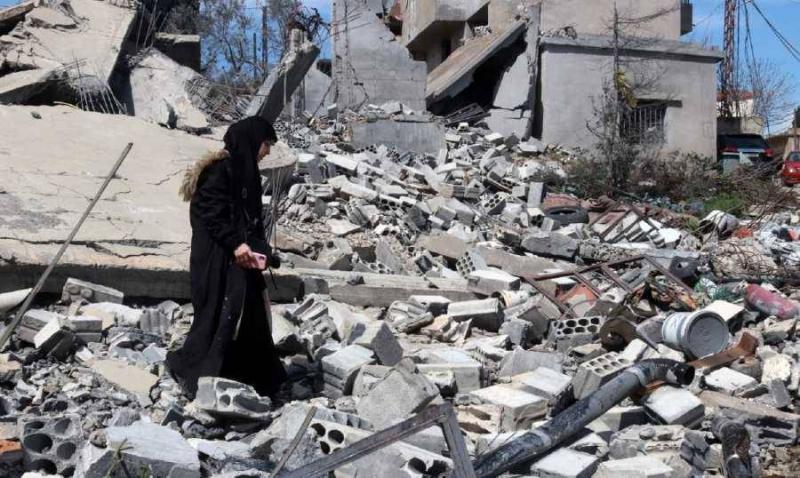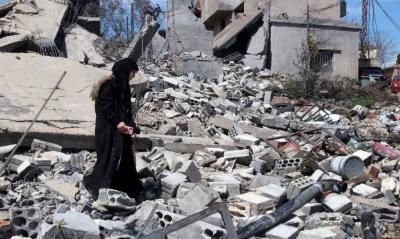Despite warnings from Western embassies and others to their citizens about traveling to Lebanon, which Moscow cautiously joined yesterday due to the possibility of an all-out war between Hezbollah and Israel that could spark a broader regional conflict, a source from the Quds Force, the external arm of the Iranian Revolutionary Guard responsible for communications between Iran and the United States, revealed a positive breakthrough in recent days within U.S. efforts to prevent the worst in the region. The U.S. has notified Tehran of this progress in recent communications.
The source told "Al-Jarida" that U.S. President Joe Biden's administration linked the issue of war in Lebanon to the cessation of certain arms shipments to Israel. This linkage was previously related to the conflict in Gaza, which Israeli Prime Minister Benjamin Netanyahu controversially discussed outside closed doors last week, causing heightened tension between Washington and Tel Aviv, and even between Netanyahu and his Defense Minister Yoav Galant, who criticized the discussion of this matter publicly from the U.S. capital.
The source explained that the Americans conditioned the resumption of these shipments to Israel on receiving guarantees that they would not lead to a full-scale war on Lebanon that could ignite a regional war. Additionally, the U.S. requested Iran to do the same with Hezbollah to compel it to de-escalate tensions. The American side emphasized that it has no intention of entering a war with Iran unless its interests are directly threatened and that both parties agreed on the necessity of avoiding any step that could lead to escalation and confrontation between them.
The source noted that during the recent U.S.-Iran communication, the Americans indicated that Israel might accept a diplomatic solution if guarantees were provided to the residents of the north, based on the equation of safeguarding the residents of northern Israel in exchange for the safety of southern Lebanon's inhabitants, which Iran proposed on behalf of Hezbollah.
In another context, the same source stated that Tehran hosted an unannounced meeting of Resistance Front leaders last Tuesday, which was attended by Quds Force Commander Esmail Qaani, where it was confirmed that all members of this front are willing to send forces to Lebanon to support Hezbollah if a war breaks out. However, Sheikh Hashem Safi Al-Din, the party's Executive Office chief and representative of Secretary-General Hassan Nasrallah at the meeting, asserted that his party has enough fighters, but if the battle escalated, they might request support either by directly sending fighters or indirectly by targeting Israeli interests.
In Beirut, Lebanese official sources confirmed that the international messages received in recent days indicate the possibility of discussing success in containing the escalation and preventing the expansion of the front into war. Sources close to Hezbollah revealed that the party remains assured that the Israelis are not moving toward launching a war or expanding confrontations, particularly since the indications within the party confirm the Israeli army's lack of preparedness for that, and no reserve forces have been called up. The number of soldiers on the border with Lebanon is about 150,000, considered insufficient for launching an offensive, as this number is designated solely for defense.
Discussions in Beirut suggest a divergence in assessments between those who believe that Netanyahu will announce an incomplete victory over Hamas in Gaza in his address to the U.S. Congress next month, closing ground operations without declaring a ceasefire, and those who contend that he will subsequently attempt to rally U.S. political support to secure a green light for expanding military operations against Hezbollah, beginning with escalation tactics. Conversely, other estimates suggest that with the cessation of ground operations in Gaza, the pace of political negotiations and seeking a diplomatic solution in dealing with Lebanon will accelerate toward a result.
Meanwhile, the Israeli newspaper Israel Hayom reported that the State Comptroller told Netanyahu in a letter that Israel is not prepared for war in the north, while the British "Financial Times" mentioned that regardless of the outcome of diplomatic efforts to prevent war, Tel Aviv has already achieved one of its goals by establishing, through military force, a security buffer zone 5 kilometers deep along the Lebanese border, effectively creating an uninhabitable dead zone.
Details from the "Financial Times" reveal that Israel aims to establish a dead zone along the border with Lebanon, extending 5 kilometers deep. The report indicates that throughout approximately nine months of intense conflict with Hezbollah, the Israeli army has destroyed vast areas of southern Lebanon, with significant damage to buildings, infrastructure, farmland, and forests, in addition to targeting military assets of Hezbollah, noting that in the scattered villages and towns along the border, entire neighborhoods have been leveled to the ground according to "Al-Jarida" Kuwait.




